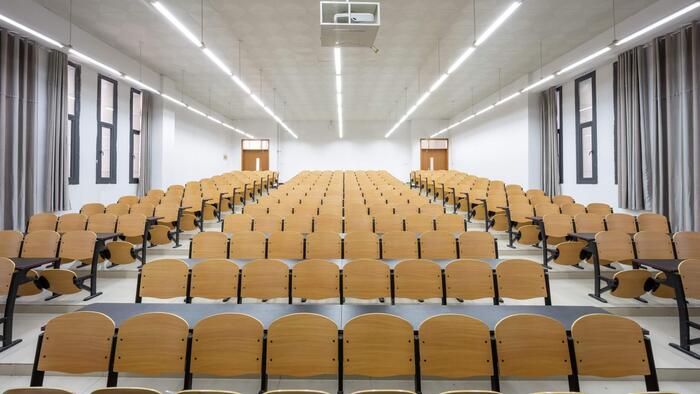The credibility of American universities appears to be at an all-time low, largely attributed to escalating tuition costs, excessive administration, ideological bias, overwhelming student debt, and ongoing discrimination controversies. Recent polling, specifically a Gallup survey from this year, illustrates a stark decline in public confidence, with only 36 percent of Americans expressing significant trust in higher education institutions that were once viewed as pathways to upward mobility. Financial contributions to universities have dwindled for two consecutive years, and there is a notable lack of intellectual diversity on campuses. Conservative speakers often face disinvitation or disruption, reflecting a troubling trend of ideological intolerance. The federally backed student loan system is in distress, burdening approximately 50% of college students with $1.7 trillion in debt, with nearly one-fifth of those loans going into default. The rising educational costs—often outpacing inflation—are closely linked to inefficient administrative expanses, creating a vicious cycle for students who are financially overextended.
The Biden administration has sought to leverage student debt relief initiatives for electoral advantage, implementing controversial amnesties that would place an undue financial burden on taxpayers, many of whom have not attended college. As higher education institutions grapple with mounting costs, there are indications that discriminatory practices in admissions persist despite recent Supreme Court rulings aimed at ending race and gender considerations. Historically, Asian and white American applicants have faced systemic disadvantages, with many universities failing to adequately evaluate standardized test scores and GPAs for these demographic groups. The situation at Stanford University illustrates these challenges well, where political biases flourish amongst faculty and donors. An overwhelming majority of Stanford affiliated individuals and faculty in the 2020 election supported the Democratic ticket, with exorbitant funding directed toward Democratic campaigns. This ideological sway directly influences academic integrity and freedom, evidenced by incidents like the disruption of a federal judge’s lecture at Stanford Law School, orchestrated by a DEI (Diversity, Equity, and Inclusion) administrator.
The fallout from these political biases comes with significant challenges, as illustrated by former Trump health advisor Scott Atlas’s censure by Stanford faculty. His predictions regarding the negative consequences of lockdowns during the COVID-19 pandemic were largely unheeded at the time, though they have since gained credibility. Attempts to retract Atlas’s sanction have faltered, demonstrating the extent to which political beliefs are being prioritized over academic discourse. Meanwhile, faculty members like Jeff Hancock, engaged in the study of deception in technology, faced scrutiny when their evidence for supporting legislative efforts was allegedly fabricated, raising questions about the integrity of academic expertise. Such incidents contribute to an overall climate of distrust and confusion about who is qualified to assess credibility.
The culture within universities has ignited specific controversies, such as those involving anti-Israel sentiment and actions, which violate university policies and contribute to an environment hostile towards Jewish students. Vandalism and obstruction have marked the protests at Stanford, culminating in a recent conclusion by a faculty committee that highlighted a perilous atmosphere for Jewish students. These incidents underline the challenges universities face in maintaining a safe and respectful environment for all students, regardless of their backgrounds or beliefs, revealing a deeper issue of respect and dignity that transcends ideological divides.
Amidst this landscape of upheaval, potential avenues for reform are being discussed at the federal level, particularly with an incoming Trump administration proposing strategies designed to redefine higher educational accountability. These proposals include conditioning federal financial aid on adherence to constitutional rights, taxing university endowments, and withdrawing federal involvement from student loans. There are emerging signs of self-awareness among some universities regarding the need for meaningful reforms. Notably, Stanford University appointed a new president who is recognized for advocating impartial education and freedom of expression. Additionally, the reinstatement of the SAT as part of the admissions process for several institutions signifies a positive shift back toward traditional measures of student capability.
Despite the prevailing challenges facing American universities, these signs of change offer a glimmer of hope for recovery and reform. The increasing acknowledgment of these systemic issues, accompanied by leadership changes and a reappraisal of admission practices, suggests that while the road to restoring integrity and public trust in higher education may be long and complex, it is not entirely out of reach. With a concerted effort to uphold the principles of free expression, academic diversity, and respect for all ideological perspectives, American universities may yet find a path forward that aligns with their foundational missions of learning and enlightenment, ultimately regaining the public confidence they have lost over the past decade.

